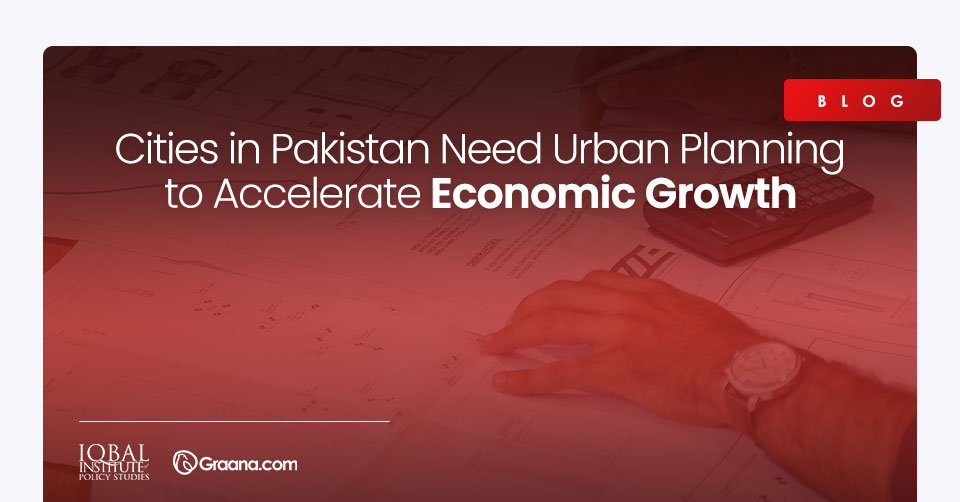
Graana.com, in collaboration with the Iqbal Institute of Policy Studies (IIPS), analyzes the ways proper urban planning in the cities of Pakistan can accelerate economic growth.
Cities are the hub of innovation, livability, diversity, culture, and economic development. They help a country compete in the global economy by making the best use of land, bringing capital, making good investment decisions, allowing skills and division of labour, encouraging entrepreneurship, and generating revenue through industry, trade and tourism.
A well-planned urban settlement provides an efficient framework for growth and positively impacts the economy.
Despite so much importance, Pakistan has failed to develop urban planning approaches at the city level. The current scenario in the supply and cost of housing, traffic congestion, pollution and waste in different parts of Pakistani cities demonstrate the urgent need for an effective policy framework for urban planning. Inclusive planning laws in a hierarchical manner could create liveable cities that are economically viable, technologically advanced and sustainable. Strategic and adequately resourced urban planning systems help cities promote economic growth and productivity.
The government should enhance livability, prosperity, and equity in cities by developing a framework that anticipates the needs of residents coordinates efforts at the management and local levels and outlines a collective path. Globally, cities attract investment and talent to enhance economic activity. Planning for economic zones and industrial development greatly influences a city’s ability to generate jobs for its residents (Urban Gateway, 2021). To establish a well-functioning society, the government must redirect its urban settlement policy and channelise development through statutory measures and a well-thought-out implementation process.
Karachi: The State Bank of Pakistan (SBP) has indicated that it will maintain a cautious…
The Pakistan Engineering Council and the Capital Development Authority have agreed to collaborate on raising…
Feb 7 (Reuters): Saudi Arabia on Saturday unveiled a wide-ranging investment package for Syria covering…
Islamabad: The Federal Board of Revenue (FBR) has issued revised valuation rates for immovable properties…
Riyadh: Saudi Arabia has completed what it described as a global first in capital market…
Rawalpindi: The Rawalpindi Development Authority (RDA) has introduced strict safety measures for all construction sites…